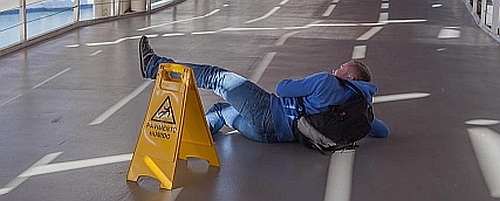- Personal Injury
A Miami personal injury lawyer will tell you that the majority of cases settle out of court, through negotiations. But there are instances – especially in high-value claims – where an insurance company will refuse to settle. They believe that you will either give up or lose your case in court.
In this situation, an experienced lawyer will analyze the situation carefully, and if the odds are in your favor instruct you to file a lawsuit. This means that you must also prepare yourself for the possibility of being requested to give a personal injury deposition.
You must not fret and worry too much about this part of your lawsuit. Your Miami personal injury lawyer will prepare you for the deposition, rehearse with you potential situations and give you helpful tips to maintain your composure and give a personal injury deposition.
When Will a Personal Injury Deposition Take Place?
Once you file a lawsuit against another person or entity, they are notified of your legal action. At this point, the discovery process begins. As your Miami personal injury lawyer will explain, this is the period of time before the beginning of the trial when both parties gather information and evidence.
The personal injury deposition is part of this process of collecting information. According to instructions issued by the Florida Bar, depositions are taken orally and after giving the person reasonable notice in writing.
Also, a personal injury deposition can be recorded both in writing, by a court reporter, and audiovisually. In the latter situation, the party taking the deposition will notify their intention to do so and specify the name and address of the operator who will perform the audiovisual recording.
The Setting and Purpose of the Personal Injury Deposition
A personal injury deposition will take place out of court. In most cases, you will be invited to the offices of the defendant’s attorney and sworn in. As specified above, a court reporter will also be present to record the deposition in shorthand. Also, you will have your Miami personal injury lawyer present.
The purpose of the deposition is to:
- Allow the other party to gather information that is only in your possession.
- Give you the chance to tell your side of the story.
- Authenticating documents which will be introduced as evidence in the lawsuit.
What Can You Expect During a Personal Injury Deposition?
As mentioned above, a deposition is a sworn statement. It must be 100% truthful, complete and accurate. However, this does not mean that you must answer every question. Your Miami personal injury lawyer will advise you whenever a question is misleading, based on conjecture or otherwise inadmissible.
However, you should be prepared to answer very detailed questions. Sometimes, an opposing counsel may reframe the same question with different words as they attempt to make you contradict your own statements.
As a general rule, the personal injury deposition will typically cover the following topics.
- Background questions: your name, birth date and place of birth, current address, marital status, education, employment history, and any prior felony convictions, especially felonies involving dishonesty.
- Your past medical history – at this point, you can no longer invoke patient confidentiality laws and must disclose any pre-existing medical condition and past injuries.
- The facts and circumstances of the accident
- A description of your injuries
- What medical treatment you received following the accident
- The effects of the accident on your life.
Some Typical Questions During the Deposition
As stated above, an opposing counsel will focus on the circumstances before, during, and after the incident with extremely detailed questions. While they may vary from case to case, you can expect to be asked questions such as:
- What had you eaten prior to the accident?
- What types of medications did you take on that day?
- What type of pain did you feel immediately after the crash and where?
- What were your actions immediately after the accident?
- Did your cat airbag deploy during the accident?
- What did you discuss with the other driver immediately after the accident?
- Were you offered an ambulance? Did you accept it?
Tips for Giving a Reliable Personal Injury Deposition
Your Miami personal injury lawyer will coach you prior to the deposition. Most people need this type of guidance, because it is quite an intimidating experience for most of us. Also, as we explained above, your lawyer will be present during the deposition and stop you from answering misleading questions which may lead to self-incriminating answers.
The general rules of a personal injury deposition are:
1. Less Is More
Stick to answering the question without giving unnecessary details. For example, answer closed questions with a simple “yes” or “no”. Do not start giving explanations, they will be duly noted and used by the opposing counsel to compare with other answers you gave.
2. Listen to Each Question Carefully
Be focused and listen to each question until the end. Do not start thinking of an answer because you may miss a critical element. Also, if you do not understand any question, do not be afraid to ask for clarification. The opposing counsel will have to rephrase it in a manner that you understand in full.
3. Do Not Guess
Never offer anything but your knowledge of the facts in a personal injury deposition. Never come up with your personal opinions or guesses as answers. Further facts may appear during the case, refuting your beliefs and making your statements appear untruthful.
4. Be Polite and Professional
Many questions during a personal injury deposition may appear too inquisitive and insensitive. Indeed, some opposing counsels try to generate an emotional reaction that would lead to a self-incriminating statement.
Remember that the judge will get to see every answer you give, as well as an overall description of your attitude. So, control your emotions and remain polite and courteous during the entire procedure.
5. When Unsure Say So
Whenever you are not sure of an answer, do not resort to guessing. A simple “I don’t know” or “I don’t remember” is enough. Nobody is expected to remember every small detail months after the event.
Rely on an Experienced Miami Personal Injury Lawyer!
Our Miami personal injury law firm is the right place to bring your claim. We will strive to settle your claim out of court. However, when the insurance company refuses to accept a reasonable settlement amount, we are prepared to win your compensation in court.
An experienced Miami personal injury lawyer will be on your side, assisting you during the entire process, including during the personal injury deposition. Remember that the statute of limitations for filing a lawsuit is 4 years after the event, so schedule a free case review with us as soon as possible.
You can get in touch with us by calling 786-686-2857.







